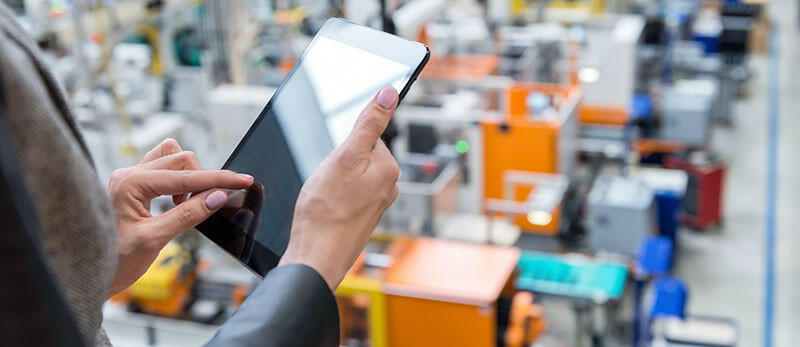UK Carbon Border Adjustment Mechanism consultation: CIOT response

The CIOT has responded to a joint consultation by HMRC/HM Treasury on the proposed introduction of a UK Carbon Border Adjustment Mechanism from January 2027. Whilst the Institute has broadly welcomed the proposal as a way to incentivise a transition away from carbon-intensive supply chains, it remains concerned about the potential administrative burden, particularly on smaller businesses.
The CIOT, in conjunction with the joint CIOT/ATT Climate Change Working Group, has responded to proposals to introduce a carbon tax on certain imports arriving in the UK from January 2027 (see tinyurl.com/3fkznwju). The following provides an overview of the proposed measure and comments made in CIOT’s consultation response.
As proposed, the UK Carbon Border Adjustment Mechanism (CBAM) would create a tax charge on imports of seven commodity types arriving in the UK: aluminium, cement, ceramics, fertilisers, glass, hydrogen and iron/steel.
These goods have been identified as having production processes which emit particularly high levels of carbon dioxide and other greenhouse gases. It is worth noting that the EU CBAM scheme, which began in October 2023 (albeit currently in reporting-only phase), has a slightly different scope, omitting ceramics and glass but extending to imported electricity.
Based on the draft UK proposals, we are likely to see additional divergence between the schemes, including the practicalities of how the ‘carbon tax’ arising under each will be paid. From January 2026, the EU CBAM is set to transition from the current reporting-only period to a system of surrendering emissions certificates. By contrast, the UK proposes a simple levy scheme, in force from the outset in January 2027.
Like its EU counterpart, the UK CBAM is designed to prevent ‘carbon leakage’ by removing the incentive for consumers of the in-scope commodities to favour imports over domestically produced alternatives. In the absence of a CBAM, imported supplies may be cheaper if they are produced in a country where climate regulation is less stringent.
Taxing imports based on emissions of greenhouse gases ‘embedded’ within them (that is emitted during their production processes) is intended to level the playing field between imports and their domestically produced equivalents. Wherethe seven commodity types in the draft scope of a UK CBAM are produced domestically, they are subject to carbon pricing under the UK Emissions Trading Scheme. Taxing imports based on their embedded emissions is intended to ensure their total cost reflects their environmental impact in the same way as their UK-produced equivalents. Under current proposals, the UK CBAM rates would, at least initially, allow importers to pay based on ‘default values’ for embedded emissions. These would be set for each commodity type based on the corresponding UK Emissions Trading Scheme price for the previous quarter.
In responding to the consultation, the CIOT stressed the importance of reviewing the default values to ensure they are at an appropriate level. Whilst importers would be free to pay the CBAM based on the actual embedded emissions in their imports, the challenges of measuring these, at least in the early days of a UK CBAM, are likely to mean that many resort to the default values for simplicity. Setting those default values too low could result in importers opting to pay the CBAM based on default values if that proves cheaper than either investing in measuring actual embedded emissions, or decarbonising their supply chains to reduce the CBAM liability. Equally, excessively high default values might force businesses to amend previous submissions once they have worked out how to accurately calculate the actual embedded emissions in commodities they import, incurring unnecessary administrative costs.
The likely administrative burden of a UK CBAM on importers, particularly smaller businesses, was a focus of the CIOT’s consultation response. As proposed, UK CBAM reporting will be required where a business either imports £10,000 of in-scope commodities in the previous 365days, or expects its in-scope imports in the next 30 days to exceed that value. The CIOT’s response proposes altering the ‘look back’ test to a monthly basis rather than the potentially burdensome daily test proposed. This would also align it with the equivalent registration tests for VAT and plastic packaging tax.
In addition to the £10,000 threshold, a further ‘de minimis’ measure was also recommended for consideration, to save businesses from CBAM compliance obligations in respect of small quantities of commodities they only import infrequently. The response observed that the EU CBAM has a €150 reporting threshold per consignment (although this is the only exception – there is no annual threshold below which reporting is not required).
The CIOT also recommended expanding the circumstances where deregistration is permitted to include, for instance, the sale or cessation of a CBAM registered business.
The role of agents in supporting businesses was also stressed in the CIOT’s response, recommending enabled agents to complete CBAM registrations, rather than being limited to submitting CBAM returns.
Finally, the CIOT response called for urgent clarification as to how the UK CBAM will operate for in-scope goods arriving into Northern Ireland, given CBAM was not covered by the Windsor Framework.
The full CIOT response can be found here: www.tax.org.uk/ref1315.
David Wright [email protected]


